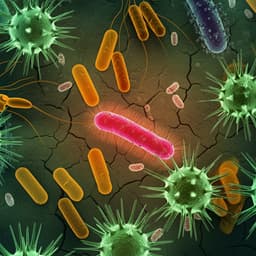
Earth Sciences
Lightning strikes as a major facilitator of prebiotic phosphorus reduction on early Earth
B. L. Hess, S. Piazolo, et al.
This groundbreaking research by Benjamin L. Hess, Sandra Piazolo, and Jason Harvey explores the intriguing role of lightning strikes as a potential significant source of prebiotic reactive phosphorus on early Earth, challenging the traditional view centered on meteorites. Discover how this could influence our understanding of life's emergence beyond Earth!
Playback language: English
Related Publications
Explore these studies to deepen your understanding of the subject.







